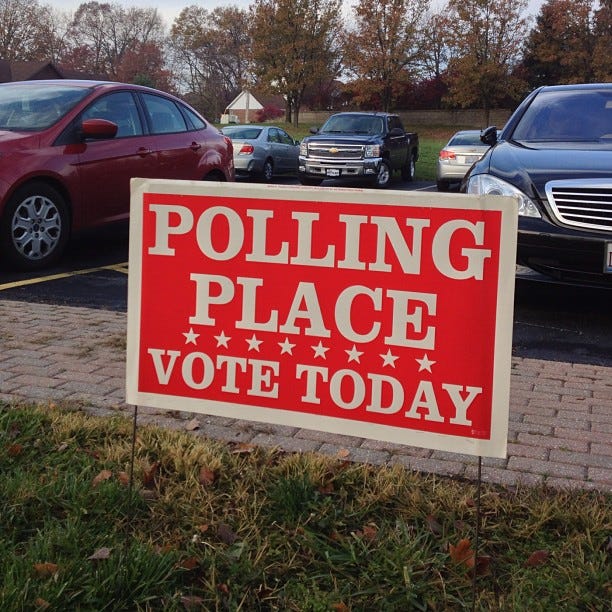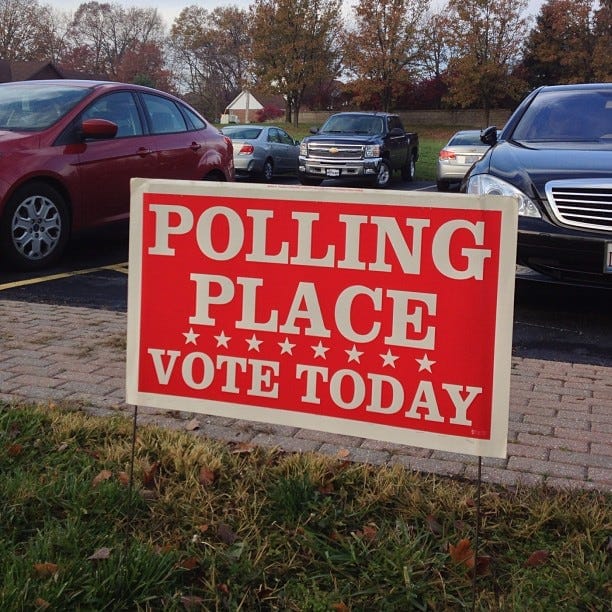
Every November around this time, the American public is harassed about the importance of voting. Perhaps you’ve seen the sign / bumper sticker that reads, “If you don’t vote, you can’t complain,” an irresponsible statement that neatly sums up a false sentiment about democracy — specifically, that it exists only at the ballot box.
This isn’t a good nor a healthy belief. Of course, you should go out and vote today. (Here’s a guide to the SF ballot if you need one.) But beyond that, you can still fight for change on all the other days of the year by getting involved in local organizing efforts.
“People have no idea — if you want something you can have it. You just have to organize for it.”
I have a good friend who works as a labor organizer who is always telling me how amazed he is at how easy it is to effect political change. “People have no idea — if you want something you can have it,” he said to me. “You just have to organize for it.”
Is that radioactive waste dump next to your kids’ elementary school making you uneasy? Knock on your neighbors’ doors. Form a coalition. Join up with other local parties. Write letters to your district supervisor. Is the lame-duck supervisor not listening to you? Gather signatures and get a proposition on the ballot next year to clean up the radiation and turn that abandoned lot into a free public waterslide.
The best thing about organizing is that those who are disenfranchised from voting — children, non-citizen immigrants and those with felonies on their records—can be involved and have their voice heard anyway. Even those who can’t vote should complain. That’s how democracy can and should work.
The whole idea behind the political concept of a republic is that citizens can’t possibly budget enough time to directly vote on every issue; hence, we hire (vote) for professionals (politicians) to enact our democratic will for us. When they screw up or decide that rich people’s needs are more important than those of their constituents, it’s up to us to bypass their negligence at the ballot box with our own propositions. But generally, if you organize well enough and prove that they should listen to what you have to say, they’ll capitulate to whatever you want.
So yes, I’m reminding our readers to vote, but I’m also reminding you not to stop there. California, in particular, is a fertile ground for citizen organizing. If you want something here, you can have it.
Thus concludes The Bold Italic’s 2016 election coverage. In that span, we covered a lot of ground, from local political color to the effect of the election on local art. Here are a few of our favorites.
Cirrus Wood asked local adult-film stars and producers what they thought about Proposition 60, which would mandate condom use in adult films. They were not enthused.
Kenneth Lipp, the journalist who uncovered that AT&T was involved in selling a for-profit spy package to law enforcement, wrote about the aftermath of this revelation.
Remember the Trump supporter who warned of “taco trucks on every corner” if Hillary Clinton were elected? Yeah, he lives in the East Bay. We sent Abraham Woodliff for a gonzo interview with him — at a taquería, natch.
How are artists reacting to a presidential election that already reads like dystopian fiction? Keith A. Spencer covers Bay Area theater artists who are making art that reflects and refracts this insane race.
And something lighter. Emoji are the new universal language of the 21st century. Nicole Karlis translates Hillary’s and Donald’s best quotes into emoji.
And finally, do you struggle to comprehened Trump’s appeal? Well, we sent Keith A. Spencer undercover to a debate watch party with the Santa Clara Trump campaign — at a Round Table Pizza. Here’s what he saw.








